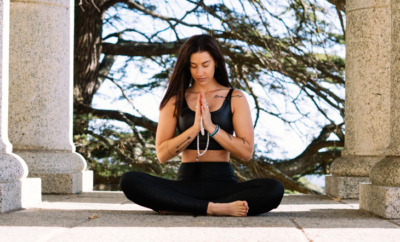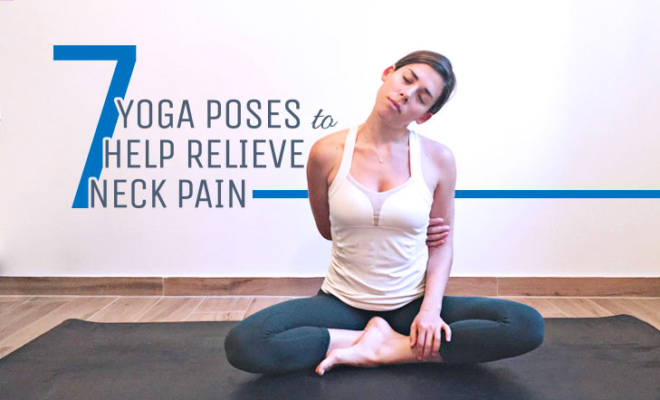A Guide to the Niyamas: The Second Path of Yoga’s Eight Limbs

Yogis can learn much from the Eight Limb Path founded in Patanjali’s Yoga Sutras – a fantastic text to study and apply to our practice on and off the mat.
The first path, the Yamas, offers five elements for self-control: non-violence, truthfulness, non-stealing, non-excess and non-possessiveness. In the second path, the Niyamas, we focus on how to find happiness by examining ourselves, through observances.
The Niyamas, a Sanskrit word meaning “observances,” ask us to dive deeply into who we are in these five areas: purity, contentment, self-discipline, self-study and surrender.
The Niyamas ask us to dive deeply into who we are in these five areas: purity, contentment, self-discipline, self-study and surrender.
In this path of yoga, we look at how we relate to ourselves and how to achieve the highly sought-after inner-peace. The Niyamas are the path that guides us to grow our personal connection and to feel more whole than we ever thought possible.
Here Are the 5 Niyamas Explained:
With a basic understanding of this sacred knowledge, you can deepen your self-awareness and find inner peace so you can live your life to the fullest. Let’s dive in!
1. Purity (Saucha)
The first Niyama is an invitation to purify ourselves from the inside out: our bodies, thoughts and words. Yogis put a lot of emphasis on cleansing (Kriyas) so we may rid ourselves of what no longer serves us.
When we set an intention to lighten the load, we give ourselves the opportunity to purify.
This process of purifying our bodies, thoughts and lifestyle can look totally different with each individual. For some, this might mean the foods and products we’re allowing to enter your body, and for others this might require you to focus on keeping your living space organized and clean.
When we clear the clutter, we create more space for happiness.
Saucha asks us to notice all of who we are – including our suffering, anxiety, and pain – to be aware of this distress so we may work toward releasing it. When we notice the affliction in our lives and are able to practice this cleanliness, we find we can then flow through life much easier.
Apply Saucha to your daily life: Observe where you can begin to purify your life. Include everything from your negativity and bad thoughts, to the food you eat and cleanliness of your home.
2. Contentment (Santosha)
The second Niyama invites us to focus on what we do have in our lives instead of focusing on what we don’t.
What we focus on grows, so to find true contentment we must focus on gratitude and an open heart. If we continue to look for happiness outside of ourselves, we will never be content. Being happy is falling in love with your life and finding joy in the present moment.
What we focus on grows, so to find true contentment we must focus on gratitude and an open heart.
Apply Santosha to your daily life: If you struggle with finding gratitude in your life, consider writing a gratitude list. Maybe you jot down ten things you’re grateful for each night before bed. This simple practice requires time and effort, but has the power to keep you centered and joyful by focusing on the abundance in your life.
3. Self-Discipline (Tapas)
Self-discipline is having the courage to face our lives as they are, and to persevere. Tapas encourages us to become someone of strength and deep character – to show up every day even during setbacks or complete failure.
This Niyama is a great reminder of the famous saying, “Practice and all is coming.”
Apply Tapas to your daily life: Observe your personal triggers in the form of habits or mindsets that take you out of your self-discipline. Bring this to light so you can identify your daily practice of responsibility. To build staying power is to stay true to ourselves, even when we are suffering or overwhelmed.
4. Self-Study (Svadhyaya)
When we want to learn or understand something, we study it. We can’t forget this applies to ourselves as well. Self-study is the relationship we have with ourselves that builds the foundation to handle life’s ups and downs.
When we truly study ourselves: who we are, what makes us happy, what are our values – we know ourselves. And when we know ourselves, we break free from suffering.
This Niyama invites you to truly study ourselves: who we are, what makes us happy, what are our values – we know ourselves. And when we know ourselves, we break free from suffering.
Apply Svadhyaya to your daily life: To truly understand ourselves, we must ask, “Where is my weakness?” When we focus on what we do not like in others, that focus is actually what we don’t like about ourselves.
We are projecting our own flaw onto the other person. Next time you find yourself judging someone, ask if this judgement is actually about you? This Niyama enables you to be a witness to yourself – to discover more than what is on the surface.
5. Surrender (Ishvara Pranidhana)
The Universe has our back, and it’s our job to trust it and know there is a higher power (God, Angels, Universe, Mother Earth) that is a guide and at work in every moment of our lives.
Surrender means to attach ourselves to something much bigger than ourselves (think of looking at the stars and observing how small we are in this Universe) and learning to stop fighting life.
Apply Ishvara Pranidhana to your daily life: A great example of how to actively surrender is dancing. When dancing with a partner, you do your part without completely taking over.
To surrender to your dance partner is to trust, to not be in the way, to let go and to be open to each and every moment with a heart full of compassion and love.
The Takeaway On the Niyamas
The Niyamas are an invitation to explore our inner-world. To consciously make decisions and choices that support a life that is better than we ever thought possible.
The Niyamas are guidelines to complete awareness of how we navigate our lives and most importantly, the elements that are required to truly care for our inner being.
This is how we are able to take the inner-peace and wisdom we gain from our yoga mat and into our daily lives.


This Month's Letter
From the Editor
Monthly motivation and food for
thought from our founder.































Comments